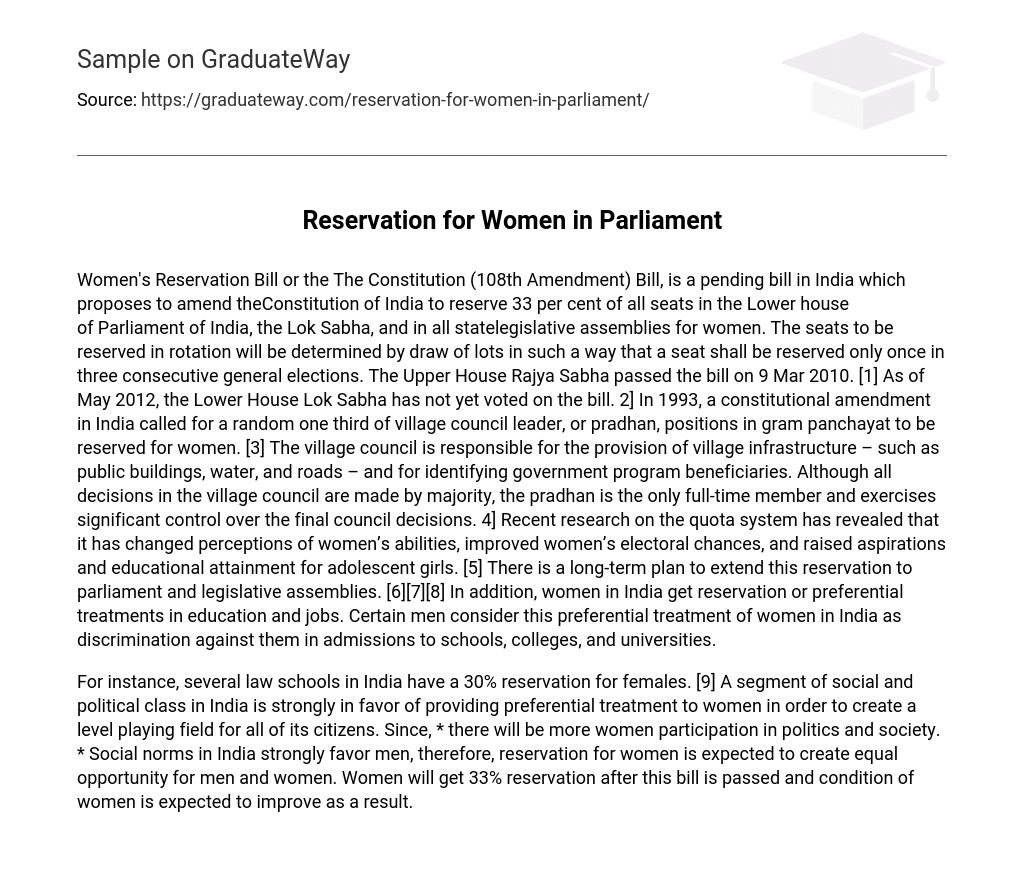Women’s Reservation Bill or the The Constitution (108th Amendment) Bill, is a pending bill in India which proposes to amend theConstitution of India to reserve 33 per cent of all seats in the Lower house of Parliament of India, the Lok Sabha, and in all statelegislative assemblies for women. The seats to be reserved in rotation will be determined by draw of lots in such a way that a seat shall be reserved only once in three consecutive general elections. The Upper House Rajya Sabha passed the bill on 9 Mar 2010. [1] As of May 2012, the Lower House Lok Sabha has not yet voted on the bill. 2] In 1993, a constitutional amendment in India called for a random one third of village council leader, or pradhan, positions in gram panchayat to be reserved for women. [3] The village council is responsible for the provision of village infrastructure – such as public buildings, water, and roads – and for identifying government program beneficiaries. Although all decisions in the village council are made by majority, the pradhan is the only full-time member and exercises significant control over the final council decisions. 4] Recent research on the quota system has revealed that it has changed perceptions of women’s abilities, improved women’s electoral chances, and raised aspirations and educational attainment for adolescent girls. [5] There is a long-term plan to extend this reservation to parliament and legislative assemblies. [6][7][8] In addition, women in India get reservation or preferential treatments in education and jobs. Certain men consider this preferential treatment of women in India as discrimination against them in admissions to schools, colleges, and universities.
For instance, several law schools in India have a 30% reservation for females. [9] A segment of social and political class in India is strongly in favor of providing preferential treatment to women in order to create a level playing field for all of its citizens. Since, * there will be more women participation in politics and society. * Social norms in India strongly favor men, therefore, reservation for women is expected to create equal opportunity for men and women. Women will get 33% reservation after this bill is passed and condition of women is expected to improve as a result.





